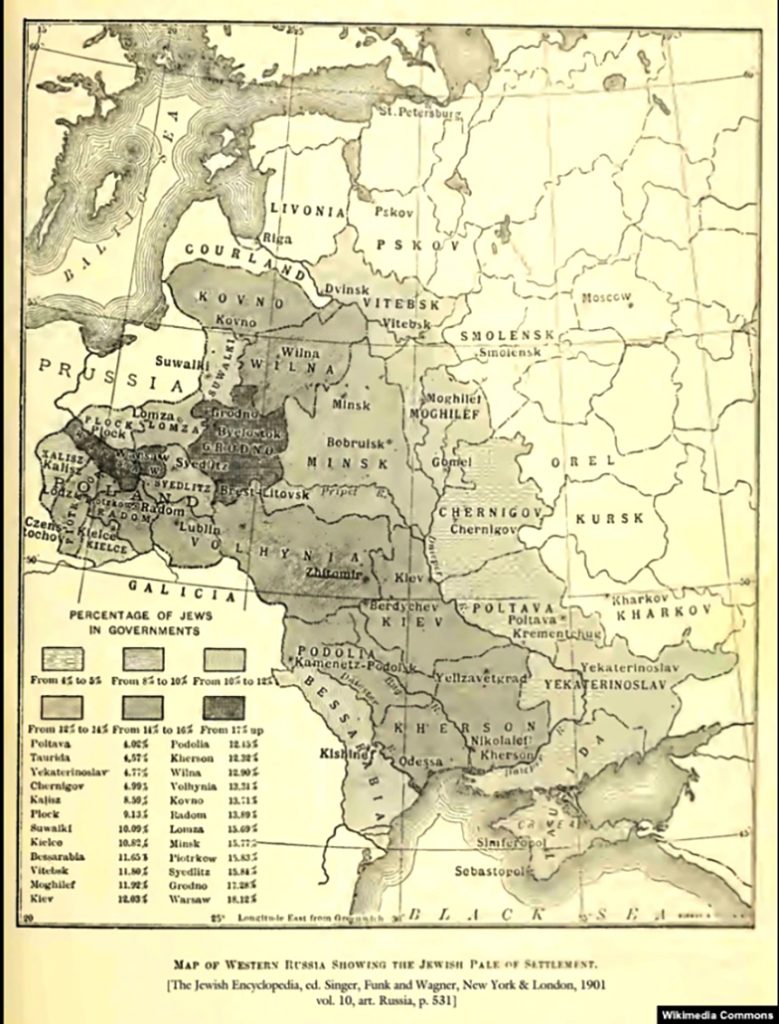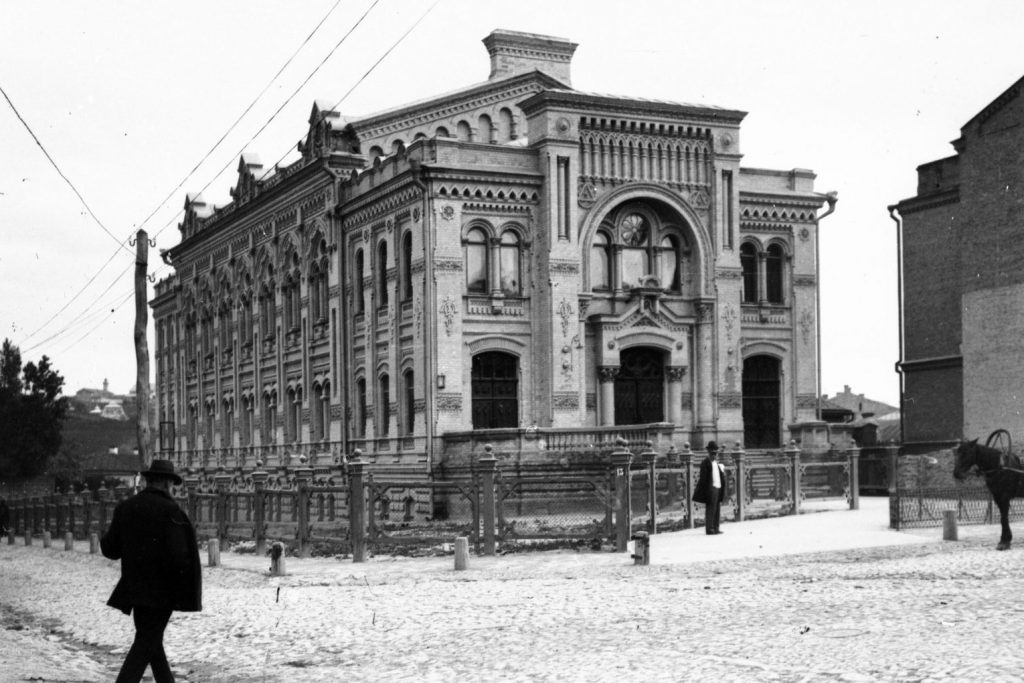The Jewish "threat" lay in the fact that they were the Other, a historian explains.
A conversation about how the state policy on the Jews was formulated in the Russian Empire
In the final days of 1791, the Russian empress Catherine II established the Pale of Settlement for the Jewish population. However, it was intended perhaps not for the Jewish population but people professing Judaism. If a person switched religions in those days, this regulation did not apply. The Pale of Settlement lasted over a hundred years, restricting the Jewish or Judaic population's freedom of movement and residence.
Our guest today is the historian Serhiy Hirik, who teaches in the Master's Program in Jewish Studies at the National University of Kyiv-Mohyla Academy.
Serhiy Hirik: The treatment of Jews and the attitude to Israel are two completely different things that should be kept separate. Russia's policies on Israel and the Jews living in the Russian Federation intersect in quite a few respects. Nevertheless, these are two different policies, and they should be considered separately.
During various periods, various individuals created the foundations of state policy on the Jews in the Russian Empire. There were practically no Jews in Russia and no Jewish communities whatsoever before 1772. That year, tens of thousands of settled Jews suddenly appeared within the empire's borders. They had always lived there. It is simply that the borders of the empire had changed. This was the territory of today's Lithuania and most of contemporary Belarus. The question then arose: how to integrate the Jews into Russian society?
No special policy regarding the Jews existed. It appeared only in the 1790s after the French Revolution began. During this period, another important event occurred: the partition of Poland. The Jewish population of Russia suddenly swelled from tens of thousands to hundreds of thousands.
The first version of the Regulation on the Jews was the first large document in the Russian Empire to regulate the rights and obligations of Jews.
Therefore, they stood out from the rest of the population for the first time. According to these documents, Jews were permitted to obtain a secular education in gymnasiums, universities, and specialized educational institutions. They were allowed to purchase agricultural land where no one had lived earlier. On these lands, they began to establish the first Jewish agricultural colonies.
Restrictions on the types of occupations were tied not only to religion (and Jews were defined precisely by their confessional affiliation).
Jews had to belong to certain classes:
- In the merchant class, Jews could only engage in trade. Merchants could live anywhere within the borders of the Pale of Settlement. They could travel outside the Pale of Settlement only to engage in trading activities;
- Townspeople were subject to the propiska, or registration. They had to live within the community in which they were registered. They could leave briefly only with the permission of the police.
The attitude of average citizens toward the Jews
Serhiy Hirik: Jews were not integrated into society because of numerous stereotypes. In various periods, the attitude of both the authorities and the population intersected in various ways.
During the reign of Alexander I, for example, there was a heightened desire for the integration of the Jews. They had always played an essential role in the empire, and the population needed people to fulfill this role. Jews were intermediaries between agricultural producers and the city, which consumed this production. Peasants had no time or desire to deliver their products to the city. Jews were thus engaged in this activity.
During the reign of Nicholas I, we see the opposite: attempts to further separate Jews from the population, on the one hand, and on the other, to integrate them by more forcible means, in particular through the 1835 Regulation. According to this document, for the first time in history, Jews were subject to recruitment into the army. This was conditioned to a certain degree by the circumstance that Nicholas I feared the Jews and sought to regulate everyone and everything.

How did the Jews pose a threat?
Serhiy Hirik: The Jews posed a threat because they were the Other, not Christians. The basic idea behind the state's policy was to stimulate the Jews' gradual transition to Christianity. They were not forcibly baptized, but attempts were made to encourage this; a monetary bonus was even issued for this purpose. A Jew who converted became officially dead to his community; a memorial prayer was even said for him.
In addition, Jews were perceived as a channel of communication with the West, which was a threat to the Russian Empire.
Russian imperial policy regarding the Jews was varied and inconsistent; it changed constantly. But there is no doubt that Russia feared them.
For the complete program, listen to the audio file.
This program is created with the support of Ukrainian Jewish Encounter (UJE), a Canadian charitable non-profit organization.
Originally appeared in Ukrainian (Hromadske Radio podcast) here.
Translated from the Ukrainian by Marta D. Olynyk.
NOTE: UJE does not necessarily endorse opinions expressed in articles and other materials published on its website and social media pages. Such materials are posted to promote discussion related to Ukrainian-Jewish interactions and relations. The website and social media pages will be places of information that reflect varied viewpoints.




















